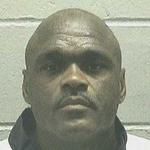
NEWS (5/29/2020) — Georgia: The U.S. Court of Appeals for the Eleventh Circuit has affirmed a district court ruling denying death-row prisoner Leon Tollette’s habeas corpus challenge to his conviction and death sentence. Tollette had argued that his death sentence should be overturned because of multiple misrepresentations and improper comments the prosecutor made during the penalty-phase closing argument and defense counsel’s failure to investigate and present mitigating evidence.
The court ruled that the prosecution committed misconduct by telling the jury that “the just punishment under a lot of religions would be death for what [Mr. Tollette did]”; that “prison is too good for [Mr. Tollette]”; and that “prison for seven years and re-paroled” for Tollette — who in fact was ineligible for parole — was insufficient punishment. However, it deferred to the judgment of the Georgia Supreme Court that the misconduct was harmless. The court also ruled that trial counsel was not ineffective in the penalty phase of trial, even though the “only mitigation evidence [counsel presented] was a plea from [Mr.] Tollette’s mother” to spare his life.

NEWS (5/28/2020) — California: In a direct review decision rendered 21 years after trial, the California Supreme Court has upheld Johnny Duane Miles’ conviction and death sentence. Miles still faces an extended delay in the appointment of counsel before his state post-conviction appeals can begin.
Over the dissent of Associate Justice Goodwin Liu, the court rejected Miles’ claim that San Bernardino County prosecutors unconstitutionally struck black jurors on the basis of race. Liu wrote: “Our recent cases have upheld quite tenuous or implausible explanations for the removal of black jurors.”

NEWS (5/26/2020) — Arkansas: The U.S. Court of Appeals for the Eighth Circuit has reversed a federal habeas court’s grant of penalty-phase relief to Arkansas death-row prisoner Mickey Thomas. The Arkansas federal district court had vacated Thomas’ death sentence, finding that his penalty-phase counsel had failed to investigate and present available mitigating evidence. The federal appeals court overturned that ruling, saying the claim was procedurally barred because his court-appointed counsel had failed to raise the issue as part of his state post-conviction appeal.